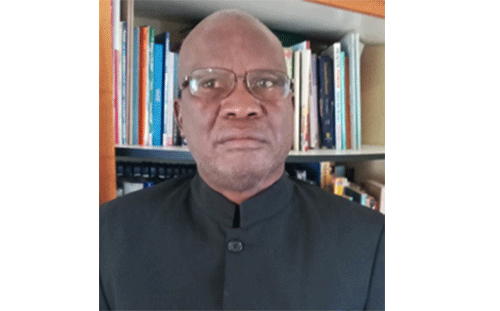After more than two decades of incarceration, another batch of eight alleged secessionists were freed on Friday, 1 December 2023 to the joyous reunion with their families.
This group is unique and significant, not only that they went through detention for so many years, but one of them managed to obtain a PhD during that time.
Dr. Aggrey Kayabu Makendano, who went to prison as an ordinary teacher, after graduating from the University of Namibia, was not barred by prison circumstances from furthering his education.
He emulated Robert Mugabe, the former president of Zimbabwe, who amassed a chain of degrees during his imprisonment as a political prisoner, and always encouraged his comrades to study as those degrees would be needed after independence.
The undaunting spirit of Dr Makendano to further his studies in prison should be applauded as it defeats all logic held by many people that prison is an unfavourable place to carry out any other activities apart from daily prison chores.
The secessionist trial dragged on for a long period and took a toll on the lives of many affected people. Even now, some of the alleged secessionists are still going through retrial and reappealing after so many years under lock and key.
Along with the Rivonia Trial of Nelson Mandela and other comrades, the Caprivi Secession Trial could perhaps be regarded as one of the longest-running legal political cases in SADC region in general and Namibia in particular.
The case was complicated in many aspects starting from the time of arrest, during the detention and the witnesses summoned to give evidence against the alleged secessionists.
Despite the Constitutional provision of Article 11 (1) which prohibits arbitrary arrest and detention, some of the alleged secessionists were simply dragged into prison without following the civilized way of handling suspects as spelt out in the Constitution.
The state security apparatus went beyond its limits by deliberately violating all of Article 8 by torturing and degrading some of the alleged secessionists. This was done even though Article 12 (1) (d) is explicitly clear by stating: “All persons charged with an offence shall be presumed innocent until proven guilty according to law, after having had the opportunity of calling witnesses and cross-examining those called against them”.
Because of the magnitude of the secession case, it ran for more than two decades and could not be contained or heard within the 48 hours constitutional and legal time frame or as soon as possible. One important thing to note is that many lawyers made a lot of money out of the ignorance of some of the authorised people who were handling it.
One might ask whether it was indeed worth it to take such a long time to prosecute. Yes, the insurrection was there, but maybe the real culprits were difficult to apprehend and that is the reason why many of the accused were found not guilty because the state could not prove its case beyond any reasonable doubt.
Despite what the alleged secessionists went through, and even upon being found not guilty, the State went on to play the ostrich by burying their heads in the sand. The State failed to compensate the alleged secessionists and left them to fend for themselves despite depriving them of their right to live as free citizens, violating Article 7 which guards against the deprivation of personal liberty.
During this period, their energies ebbed away and possibly may no longer work as energetically as before. That is the painful reality of the legal system, which purports to be independent, but in this case, acted contrary to the realities on the ground. This is not strange because Namibia has gone through centuries of painful injustice systems and many people seem to take that as normal.
The problem of assuming that the suspect is guilty comes a long way. It was common in the dungeons where many Namibians lost their lives by being implicated in crimes they knew not and did not commit.
By going through these evil systems, the political leaders of the new Namibia should have understood the realities of being detained on mere assumptions and suspicions.
Yes, innocent heads rolled on that fateful day of 2 August 1999, and whatever reasons those who carried such barbaric acts had, they cannot be condoned. The real culprits should have been brought to court to face the wrath of the law. But it is the story of the then Caprivi, which is refusing to go away.
Political leaders should also understand that it is difficult to give away one’s history and heritage. This has been the painful reality in many African states where colonialism has partitioned people who were not supposed to be separated and brought together those who were not supposed to be brought together, as argued by Mazrui (1986).
The inmates are free at last and will try to pick up the pieces where they left off, but it could be really challenging and they definitely need the support of family members and the community in which they will be residing.
In some quarters they might be forced to deal with the stigma of being labelled as ‘rebels’ – a term coined referring to the people who partook in the secessionist attack in particular and to the Mamili people in general, although some were not part to that.
* Professor Makala Lilemba is an academician, author, diplomat, motivational leader, researcher and scholar.


